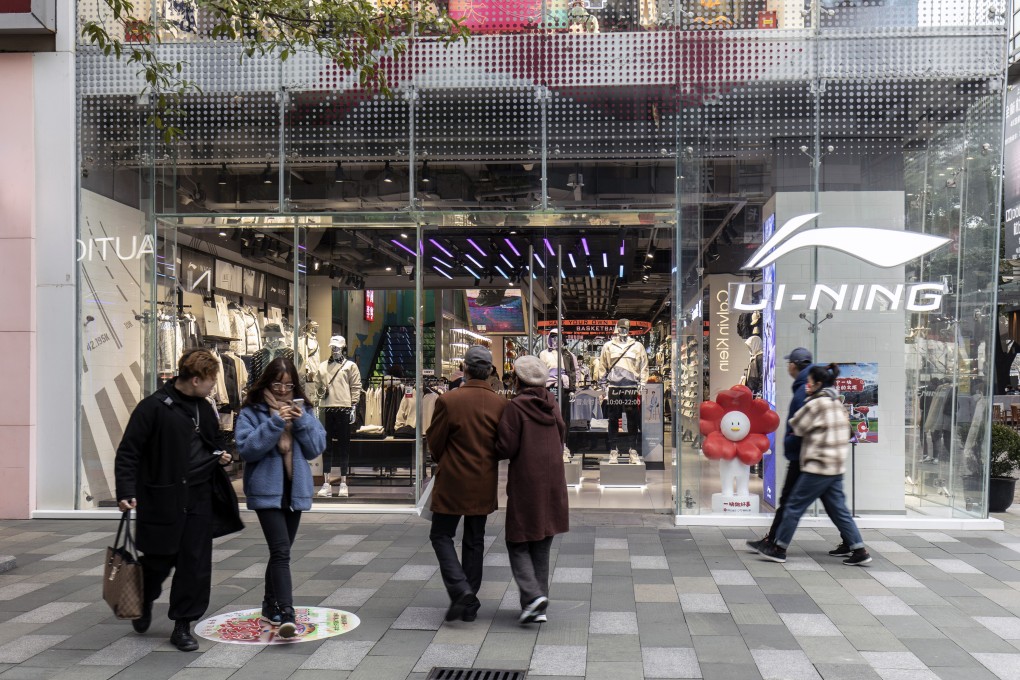Li Ning shares lose 10 per cent as Chinese sportswear brand reports weaker-than-expected 2022 profits
- Profit increased 1.3 per cent year on year to 4.06 billion yuan (US$590 million), versus the 4.17 billion yuan the market expected
- Looking ahead, ‘a huge market vitality has been unleashed, which is conducive to promoting sports consumption’, founder says

Shares in Chinese sportswear maker Li Ning dropped by the most in a year as it reported weaker-than-expected earnings for 2022, citing Covid-19 challenges that led to discounts and ballooning inventory.
Revenue increased 14.3 per cent to 25.8 billion yuan, while gross profit margin fell 4.6 percentage points to 48.4 per cent, the company said during a results briefing, blaming cost inflation caused by higher inventory and retail discounts.
Li Ning’s shares slumped 10 per cent to HK$57.70 in Hong Kong on Friday, the biggest setback since an 11 per cent decline on March 14 last year, according to Bloomberg data.

Inventory surged by the most in five years, expanding 37 per cent year on year to 2.55 billion yuan, calculated at cost before provision, the company said. The high inventory was partly due to logistics problems during the Covid-19 pandemic, said Qian Wei, executive director and co-CEO.
“Sometimes we need to stock a lot of products to prevent [problems from] the uncertain logistics capabilities during the pandemic, thus there might be a high inventory in the short term,” he said. “But actually our inventory ageing structure remained reasonable and controllable.”